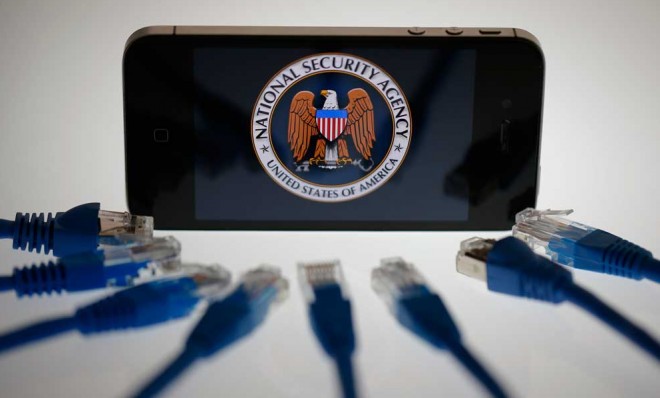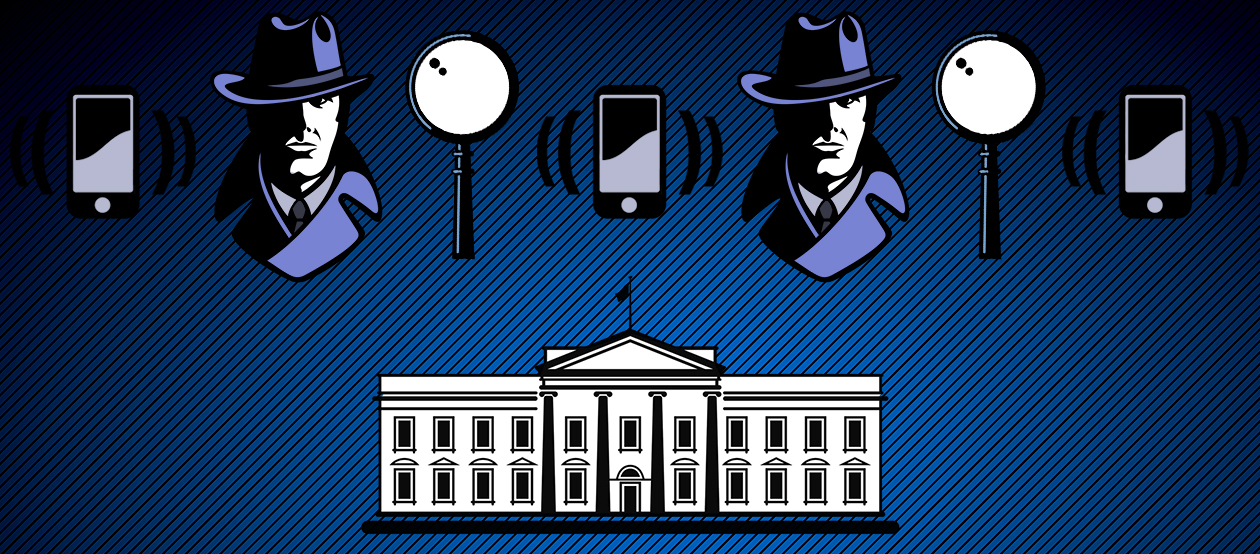DNI: NSA can't spy on Americans without a warrant
No matter what Jerry Nadler thinks he was told in a briefing


A free daily email with the biggest news stories of the day – and the best features from TheWeek.com
You are now subscribed
Your newsletter sign-up was successful
A rare Sunday afternoon statement by the Office of the Director of National Intelligence responds to news reports that Jerry Nadler (D-N.Y.) was told in a Congressional briefing that the NSA could listen to Americans' phone calls without a warrant:
The statement that a single analyst can eavesdrop on domestic communications without proper legal authorization is incorrect and was not briefed to Congress. Members have been briefed on the implementation of Section 702, that it targets foreigners located overseas for a valid foreign intelligence purpose, and that it cannot be used to target Americans anywhere in the world.
Here's what confused Nadler. While it is true that an American communication can be accidentally intercepted after an analyst makes a decision to intercept a foreign communication, it would be just plain illegal for an analyst who believes that his or her target is an American to begin the interception process, the content interception process, without a FISA warrant.
The Week
Escape your echo chamber. Get the facts behind the news, plus analysis from multiple perspectives.

Sign up for The Week's Free Newsletters
From our morning news briefing to a weekly Good News Newsletter, get the best of The Week delivered directly to your inbox.
From our morning news briefing to a weekly Good News Newsletter, get the best of The Week delivered directly to your inbox.
Here's where Nadler is not entirely wrong: The NSA has a bit of a safe harbor period — details classified — if certain conditions are met, when it comes to an emergency interception of a domestic end of a telephone call or e-mail. Think: An actual ticking time bomb scenario.
But the Attorney General would likely be called into an emergency FISA meeting that day, and if the FISA court refuses to issue a warrant, the interception would stop. But an analyst cannot simply decide to start an emergency interception process without virtually the entire mothership at Ft. Meade being notified immediately.
My understanding is that NSA does not have this emergency authority at all for American citizens or corporations — only for American "facilities," which is a fancy word for physical or virtual targets based in America. If there's emergency situation involving an American, NSA sends a bulletin to the FBI through the National Counterterrorism Center in Virginia and lets them deal with it.
Remember, the upshot of the 2008 FISA amendments acts is that the NSA got expanded access to U.S. telecom switches and hubs in exchange for agreeing not to spy on Americans anywhere in the world without a FISA order. And again, the FBI usually does the interception if an American is involved. Doesn't matter where you are: If you're an American, you're protected by FISA. If you're an agent of a foreign power, or there's a reason to believe you're associated with a group of bad guys and you're not a U.S. person, the NSA can indeed begin to intercept your communications without a FISA order in certain, classified circumstances.
A free daily email with the biggest news stories of the day – and the best features from TheWeek.com
Marc Ambinder is TheWeek.com's editor-at-large. He is the author, with D.B. Grady, of The Command and Deep State: Inside the Government Secrecy Industry. Marc is also a contributing editor for The Atlantic and GQ. Formerly, he served as White House correspondent for National Journal, chief political consultant for CBS News, and politics editor at The Atlantic. Marc is a 2001 graduate of Harvard. He is married to Michael Park, a corporate strategy consultant, and lives in Los Angeles.
-
 The ‘ravenous’ demand for Cornish minerals
The ‘ravenous’ demand for Cornish mineralsUnder the Radar Growing need for critical minerals to power tech has intensified ‘appetite’ for lithium, which could be a ‘huge boon’ for local economy
-
 Why are election experts taking Trump’s midterm threats seriously?
Why are election experts taking Trump’s midterm threats seriously?IN THE SPOTLIGHT As the president muses about polling place deployments and a centralized electoral system aimed at one-party control, lawmakers are taking this administration at its word
-
 ‘Restaurateurs have become millionaires’
‘Restaurateurs have become millionaires’Instant Opinion Opinion, comment and editorials of the day
-
 The recycling crisis
The recycling crisisThe Explainer Much of the stuff Americans think they are "recycling" now ends up in landfills and incinerators. Why?
-
 The L.A. teachers strike, explained
The L.A. teachers strike, explainedThe Explainer Everything you need to know about the education crisis roiling the Los Angeles Unified School District
-
 The NSA knew about cellphone surveillance around the White House 6 years ago
The NSA knew about cellphone surveillance around the White House 6 years agoThe Explainer Here's what they did about it
-
 America's homelessness crisis
America's homelessness crisisThe Explainer The number of homeless people in the U.S. is rising for the first time in years. What’s behind the increase?
-
 The truth about America's illegal immigrants
The truth about America's illegal immigrantsThe Explainer America's illegal immigration controversy, explained
-
 Chicago in crisis
Chicago in crisisThe Explainer The "City of the Big Shoulders" is buckling under the weight of major racial, political, and economic burdens. Here's everything you need to know.
-
 The bad news about ISIS's defeat in Ramadi
The bad news about ISIS's defeat in RamadiThe Explainer The contours of a broader sectarian war are coming into focus
-
 America can still destroy the world
America can still destroy the worldThe Explainer The decline of U.S. military power has been greatly exaggerated
